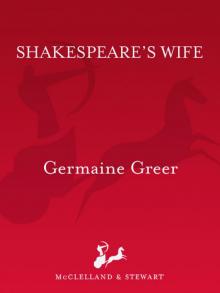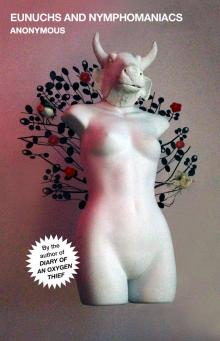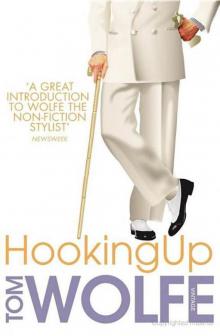Shakespeare's Wife


Author: Germaine Greer
Category: Nonfiction
Published: 2007
Series:
View: 505
Read OnlineFrom Publishers WeeklySignatureReviewed by Marilyn FrenchGiven the hysterical responses of some British critics to Germaine Greer's new book about Ann Hathaway, one expects wild-eyed surmises about that woman's life. Instead, Greer offers a richly textured account of the lives of ordinary women in Stratford and similar towns in the late 16th and early 17th centuries. We know very little about Shakespeare's life, and even less about his wife's, but this has not deterred generations of critics from inventing a narrative for them. In general, they aver that Ann, being eight years older than Shakespeare, was an unattractive woman who seduced and trapped him in an unwanted marriage, from which he escaped as soon as possible. His abandonment of his wife and three children supposedly without support is generally regarded as their just desserts, as is his will, leaving her with nothing but his second-best bed. Greer questions these critical judgments, but her real interest lies in tracing how the Shakespeare family could have survived. She meticulously traces the members of the Shakespeare and Hathaway families, their acquaintances, relatives of their acquaintances and notable people in Stratford. She reminds us of facts other critics have ignored: for instance, in the late 15th century, almost half the children died in their early years, often from malnutrition. Ann Shakespeare's children survived-the two girls to adulthood, and the boy, Hamnet, until 11-so she must have been able to feed them. Greer shows that no one else would have been likely to step in to help Ann feed her family: she would have had to do it herself. Given a list of Ann's possessions at one point in her life, Greer theorizes she was a maltster: many women made decent livings by making ale. Greer's details of how ordinary people lived in this period are extremely interesting-the contents of their houses, the value of their clothes, the number of rooms they occupied. These facts are also quite moving because death was omnipresent. Her theory about Shakespeare's relation with his wife is original and persuasive: she imagines there was real love between them, at least at some point. She cites the desire depicted in "Venus and Adonis" (about an older woman and a younger man) and suggests that some of the sonnets were written to Ann. She offers theories and not, she is careful to state, a definitive narrative. The theory that seems most to have inflamed British critics is the idea that Ann may have paid to have Shakespeare's plays printed after his death. Since many wives do publish their husbands' work after their death, I'm not sure why this is considered so heretical, but Greer knew it would be. (Apr. 8)Copyright © Reed Business Information, a division of Reed Elsevier Inc. All rights reserved. From BooklistIn 1979, noted feminist Greer wrote The Obstacle Race: The Fortunes of Women Painters and Their Work, which helped save several women artists from obscurity. Now she turns her attention to another shadowy figure, Ann Hathaway. Greer wants to rescue Hathaway from the frantic fantasising of the bardolators, who would have us believe that Shakespeare left Stratford for London in order to escape an unhappy marriage. Maybe, and since the cupboard is so bare of facts, Greer can do no more than speculate herself. But her speculation is based on careful sifting through every shard of contextual evidence—archives, records, registers, and literary works—not just as it relates to the Shakespeares and the Hathaways but also as it relates to their place and time. What we get is a portrait of life in Stratford circa 1600 on almost every level and in every aspect—the practice of medicine, the brewing of ale, birth, marriage, and burial. Although Ann herself remains in the shadows, Greer provides an intriguing analysis that helps us understand more about the person Ann might have been. Reader interest probably will be based more on the author’s name than on the subject. --Mary Ellen Quinn
 Eunuchs and Nymphomaniacs
Eunuchs and Nymphomaniacs Sons Of Danu
Sons Of Danu Binge
Binge River's Edge
River's Edge The Adventures of Super Emily
The Adventures of Super Emily Hooking Up
Hooking Up The Cherry Orchard by Anton Chekhov
The Cherry Orchard by Anton Chekhov Distant Star: Episode Two - Far Future
Distant Star: Episode Two - Far Future